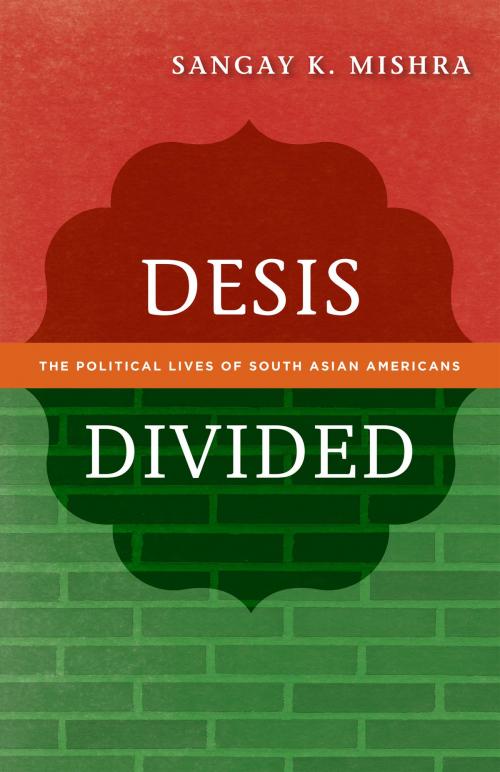Desis Divided
The Political Lives of South Asian Americans
Nonfiction, Social & Cultural Studies, Social Science, Cultural Studies, Emigration & Immigration, Ethnic Studies| Author: | Sangay K. Mishra | ISBN: | 9781452949918 |
| Publisher: | University of Minnesota Press | Publication: | March 1, 2016 |
| Imprint: | Univ Of Minnesota Press | Language: | English |
| Author: | Sangay K. Mishra |
| ISBN: | 9781452949918 |
| Publisher: | University of Minnesota Press |
| Publication: | March 1, 2016 |
| Imprint: | Univ Of Minnesota Press |
| Language: | English |
For immigrants to America, from Europeans in the early twentieth century through later Latinos, Asians, and Caribbeans, gaining social and political ground has generally been considered an exercise in ethnic and racial solidarity. The experience of South Asian Americans, one of the fastest-growing immigrant populations in recent years, tells a different story of inclusion—one in which distinctions within a group play a significant role.
Focusing on Indian, Pakistani, and Bangladeshi American communities, Sangay K. Mishra analyzes features such as class, religion, nation of origin, language, caste, gender, and sexuality in mobilization. He shows how these internal characteristics lead to multiple paths of political inclusion, defying a unified group experience. How, for instance, has religion shaped the fractured political response to intensified discrimination against South Asians—Hindus, Muslims, and Sikhs—in the post-9/11 period? How have class and home country concerns played into various strategies for achieving political power? And how do the political engagements of professional and entrepreneurial segments of the community challenge the idea of a unified diaspora? Pursuing answers, Mishra argues that, while ethnoracial mobilization remains an important component of South Asian American experience, ethnoracial identity is deployed differently by particular sectors of the South Asian population to produce very specific kinds of mobilizing and organizational infrastructures. And exploring these distinctions is critical to understanding the changing nature of the politics of immigrant inclusion—and difference itself—in America.
For immigrants to America, from Europeans in the early twentieth century through later Latinos, Asians, and Caribbeans, gaining social and political ground has generally been considered an exercise in ethnic and racial solidarity. The experience of South Asian Americans, one of the fastest-growing immigrant populations in recent years, tells a different story of inclusion—one in which distinctions within a group play a significant role.
Focusing on Indian, Pakistani, and Bangladeshi American communities, Sangay K. Mishra analyzes features such as class, religion, nation of origin, language, caste, gender, and sexuality in mobilization. He shows how these internal characteristics lead to multiple paths of political inclusion, defying a unified group experience. How, for instance, has religion shaped the fractured political response to intensified discrimination against South Asians—Hindus, Muslims, and Sikhs—in the post-9/11 period? How have class and home country concerns played into various strategies for achieving political power? And how do the political engagements of professional and entrepreneurial segments of the community challenge the idea of a unified diaspora? Pursuing answers, Mishra argues that, while ethnoracial mobilization remains an important component of South Asian American experience, ethnoracial identity is deployed differently by particular sectors of the South Asian population to produce very specific kinds of mobilizing and organizational infrastructures. And exploring these distinctions is critical to understanding the changing nature of the politics of immigrant inclusion—and difference itself—in America.















